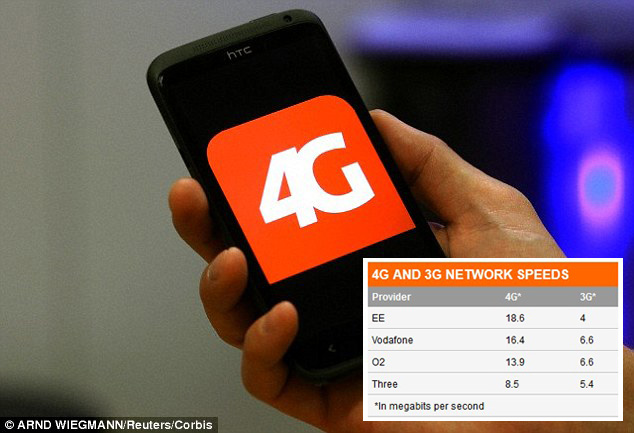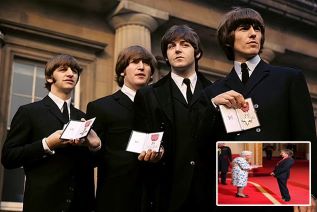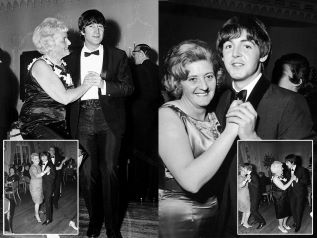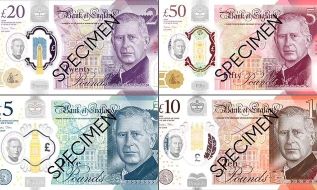4G Lebih Cepat? Hasil Riset di Inggris, Sesumbar Operator Janji Kosong
Study by Ofcom Says 4G Speeds in the UK are Slower Than Promised
Editor : Ismail Gani
Translator : Novita Cahyadi

LAYANAN telekomunikasi bergerak generasi keempat (4G) di Inggris ternyata tidak terbukti super cepat seperti dijanjikan oleh operator - dan bahkan bisa lebih lemot.
Perusahaan seluler membual bahwa layanan 4G bakal 'lima kali lebih cepat' daripada jaringan 3G yang ada saat 4G diluncurkan pada musim gugur 2012. Bagaimana dengan Indonesia, yang regulasinya kendor dan hak pelanggan kerap diabaikan.
Namun, sebuah riset resmi terbaru mengungkap bahwa kecepatan rata-rata 2,5 kali lebih cepat - 14,7 megabit per detik (Mbps) dibandingkan dengan 5.9 Mbps pada layanan 3G yang digunakan kebanyakan orang.
Pada saat yang sama, bukti-bukti menunjukkan bahwa layanan 4G cenderung melambat karena lebih banyak pelanggan yang menggunakan.
Teknologi 4G sedang dipromosikan oleh jaringan mobile besar di dasar dengan menawarkan akses internet berkecepatan tinggi dan video streaming tanpa buffering yang mengganggu, seperti dilansir MailOnline.
Lebih dari 10 juta orang pelanggan termakan oleh janji operator dengan meneken kontrak berlangganan dua tahun dengan biaya rata-rata Rp300 ribuan per bulan.
Kecepatan data 4G ditawarkan regulator telekomunikasi, Ofcom, yang mendukung teknologi dan menegaskan tentang menunjukkan manfaat penting dan lebih menguntungkan daripada layanan 3G.
Meskipun demikian, belum diketahui kemampuan maksimal 4G yang dijanjikan jaringan utama dari EE, O2, Vodafone dan 3.
Penelitian Ofcom yang membandingkan kecepatan dan cakupan geografis dari jaringan EE, yang sahamnya diakuisisi British Telecom (BT) senilai US$18,5 miliar.
Jaringan 4G dari EE, yang meliputi 81% dari pelanggan rumah dan bisnis, menawarkan kecepatan download tercepat rata-rata 18.6 Mbps. Hal ini tampaknya lebih baik daripada layanan 3G, yang hanya mampu 4 Mbps.
Jaringan tercepat kedua adalah Vodafone dengan 16,4 Mbps untuk 4G vs 6,6 Mbps untuk 3G. O2 di peringkat ketiga dengan 13,9 Mbps vs 6,6 Mbps, diikuti oleh 3 yang relatih lambat hanya 8,5 Mbps untuk 4G sebagai hal yang tidak mengesankan dibanding 5,4 Mbps untuk 3G.
Kecepatan upload menjadi sangat penting ketika dipakai untuk berbagi konten, seperti foto dan video ke situs media sosial seperti Instagram dan Facebook.
EE juga tercepat pada ukuran ini pada 17,6Mbps, diikuti oleh O2 pada 13,2 Mbps, Vodafone pada 13,1 Mbps dan Tiga dengan 9,4 Mbps.
Ketiga jaringan tergolong tercepat untuk membuka halaman web dalam rentang waktu 0,63 detik, dibandingkan dengan 0,71 detik untuk O2, Vodafone dan 0,76 detik dan 0,77 detik untuk EE.
Ada bukti penting untuk meyakini kecepatan yang ditawarkan oleh 4G melambat.
Ketika layanan 4G diluncurkan pada akhir 2012, kecepatan download rata-rata naik sekitar 19 Mbps, namun penelitian baru menunjukkan rata-rata hanya 14,7 Mbps an penelitian lain menyatakan di bawah 10 Mbps.
Hal ini terjadi karena banyak orang yang menggunakan layanan ini, secara efektif menyebabkan kemacetan di gelombang udara. Satu-satunya cara mengatasi hal ini adalah jika upgrade kemampuan jaringan dengan jutaan poundsterling dan memasang menara BTS yang baru.
Angka-angka Ofcom didasarkan pada pengujian terhadap 120.000 smartphone di lima kota sampel yakni Edinburgh, Leeds, London, Newcastle dan Poole/Bournemouth - antara Oktober dan Desember.
Penelitian yang menemukan bahwa kecepatan download di Edinburgh turun 12,5% antara musim panas dan akhir tahun lalu. Waktu untuk memanggil halaman web meningkat sedikit dari 0,8 detik ke 0,72 detik.
Ofcom mengakui: "Karena semakin banyak orang yang mengambil layanan 4G dari operator seluler, hal ini kemungkinan akan mempengaruhi kecepatan rata-rata yang diterima."
Kecepatan untuk London tidak berubah selama periode yang sama, sementara tidak ada data untuk daerah lain.
Claudio Pollack, Direktur Consumer Ofcom, mengatakan penelitian ini dirancang untuk meningkatkan persaingan dengan membantu konsumen memutuskan jaringan mobile menawarkan layanan terbaik.
Dia mengatakan: "Orang-orang semakin terhubung, berkomunikasi dan berbagi konten pada ponsel mereka."
THE NEW 4G mobile phone services in the UK are not as super-fast as the industry promised - and could get worse.
The mobile phone companies boasted that 4G services would be ‘five times faster’ than the existing 3G networks when they launched in the autumn of 2012.
However, a new official study puts the real figure at an average of 2.5 times faster - 14.7 megabits per second compared to 5.9Mbit/s per second on the 3G service that most people use.
At the same time, the evidence suggests that 4G services are likely to slow down as more people connect to them.
4G technology is being promoted by the big mobile networks on the basis it offers high speed internet access and smooth video streaming without annoying buffering.
More than 10 million people have been won over by the promises and have signed two year contracts costing an average of £20 ($30) a month.
The 4G speed data comes from the telecoms regulator, Ofcom, which supports the technology and insists the figures show a meaningful and significant benefit over the 3G services.
Despite this, the figures make clear the step change has not been as remarkable as the major networks - EE, O2, Vodafone and Three - promised.
Ofcom’s research compares the speed and geographic coverage of the networks and puts EE, which is the subject of a £12.5 billion ($18.5 billion) takeover by BT, on top.
EE’s 4G network, which covers 81 per cent of homes and businesses, delivered the fastest average download speed of 18.6Mbit/s. This looks good when compared with its 3G service, which was a slow 4Mbit/s.
Second fastest was Vodafone with 16.4 for 4G versus 6.6 for 3G. O2 came next at 13.9 versus 6.6, followed by Three at a relatively slow 8.5 for 4G which was not very impressive against the 5.4 for 3G.
Upload speeds are important when sharing content, such as pictures and videos to social media sites like Instagram and Facebook.
EE was also fastest on this measure at 17.6Mbit/s, followed by O2 on 13.2, Vodafone on 13.1 and Three with 9.4.
The Three network was the fastest to load a web page at 0.63 seconds, compared to 0.71 for O2, 0.76 for Vodafone and 0.77 for EE.
There is good evidence to believe the speeds offered by 4G are slowing down.
When 4G services launched at the end of 2012, the average download speed was up at around 19 Mbit/s, however the new research suggests an average of 14.7 and other studies put it as low as 10.
This has happened because more people are using the service, effectively causing jams on the airwaves. The only way this can be countered is if the networks spend millions upgrading masts and installing new ones.
The Ofcom figures are based on 120,000 smartphone tests in five sample towns and cities - Edinburgh, Leeds, London, Newcastle and Poole/Bournemouth - between October and December.
Its study found that download speeds in Edinburgh fell by 12.5 per cent between the summer and end of last year. The time to call up a web page improved marginally from 0.8 seconds to 0.72.
Ofcom admitted: ‘As more people are taking 4G services from the mobile operators, this is likely to affect the average speeds being received.’
The speeds for London were unchanged over the same period, while there was no data for the other areas.
Claudio Pollack, Ofcom’s Consumer Director, said the study is designed to boost competition by helping consumers decide which mobile networks are offer the best service.
He said: ‘People are increasingly connected, communicating and sharing content on their mobiles when out and about.















